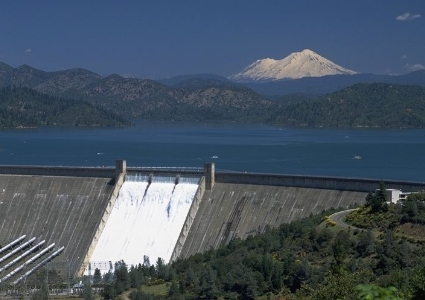Polling

Suggest an important issue not listed in this sub-category (). (Maximum 60 Characters)
Water system security

There are 148,000 public water systems providing safe and clean water to nearly 329 million Americans. Disruption of these systems would likely bring the affected areas to a standstill, causing severe risks to health and safety as well as much economic loss. For this reason, our federal government provides some protection for these facilities. Since 9/11, the EPA has been developing new security technologies to detect and monitor water contaminants. Law enforcement has been working on preventing security breaches at the reservoirs and watersheds which supply our water systems. Security advocates say if contaminants can be detected early enough, they can be prevented from reaching consumers. If not, our water treatment plants must be able to quickly communicate warnings to their customers. In addition to intentional releases, our water supplies can also be contaminated by naturally occurring chemicals and minerals such as radon, uranium and arsenic. Contaminates from urban, factory, and farm pollution are threats as well.
However, advocates are most worried that our water systems may be vulnerable to sabotage. In 2014, Boston police arrested 7 nationals from Pakistan, Saudi Arabia and Singapore who were discovered trespassing one night at Quabbin Reservoir, the main source of water for Massachusetts. Some of these intruders had recently earned chemical engineering degrees, but were released after police found no wrongdoing. Although this incident did not pose a threat, it may indicate that those who wish us harm are aware of the vulnerability of our water systems.
Pending Legislation: S.660 - Water System Threat Preparedness and Resilience Act of 2023
Sponsor: Sen. Edward Markey (MA)
Status: Senate Committee on Environment and Public Works
Chair: Sen. Tom Carper (DE)
However, advocates are most worried that our water systems may be vulnerable to sabotage. In 2014, Boston police arrested 7 nationals from Pakistan, Saudi Arabia and Singapore who were discovered trespassing one night at Quabbin Reservoir, the main source of water for Massachusetts. Some of these intruders had recently earned chemical engineering degrees, but were released after police found no wrongdoing. Although this incident did not pose a threat, it may indicate that those who wish us harm are aware of the vulnerability of our water systems.
Pending Legislation: S.660 - Water System Threat Preparedness and Resilience Act of 2023
Sponsor: Sen. Edward Markey (MA)
Status: Senate Committee on Environment and Public Works
Chair: Sen. Tom Carper (DE)
Poll Opening Date
November 11, 2024
Poll Closing Date
November 17, 2024
Democracy Rules respects the privacy of your information.
See PRIVACY STATEMENT
See PRIVACY STATEMENT